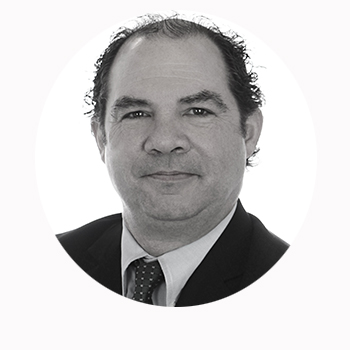2017 Outlook: Investment Considerations for Trump Administration





WisdomTree’s Chief Investment Strategist, Luciano Siracusano (L.S.), its Director of Research, Jeremy Schwartz (J.S.), its Head of Fixed Income and Currency, Rick Harper (R.H.), and Senior Fixed Income Strategist Kevin Flanagan (K.F.) sat down in mid-December to reflect on 2016 and discuss the forces that could impact global financial markets in 2017. Below is an excerpt from the discussion. You can also access the full roundtable piece below.
Q: What do you see as the key investment considerations as the world prepares for the new Trump administration?
J.S.: Everyone has focused on how Trump’s policies are going to “make America great again,” and from an asset allocation perspective, it is rather conventional thinking to favor U.S. equity markets. But the U.S. equity market has also been where some of the greatest returns have been for the last 10 years. Part of this U.S. bias is motivated by rising yields and a rising U.S. dollar that have made some exposures to international markets appear less attractive, particularly for emerging markets, which tend to be most vulnerable to U.S. dollar shocks. Because the default for many is to over-weight in the U.S., I believe it is useful to consider markets that investors are most fearful of, or where valuations look more attractive. This includes Europe, Japan and the emerging markets.Certainly, if Trump were to initiate a global trade war, all bets would be off for global equities—whether U.S. markets or international markets. But what if Trump initiates a global corporate tax-cutting war, where countries compete to lower tax rates and incentivize companies to invest or increase hiring? This could be very positive for global equities over the long term.
In allocating overseas, I see value and diversification in blending exposures to areas of the market and world that benefit from a strong U.S. dollar compared to those that benefit from a weak U.S. dollar. Examples of this diversification synergy would be to over-weight in U.S. mid- and small-cap companies, which tend to outperform large caps during strong dollar environments, along with Japan (a strong dollar beneficiary) paired with emerging markets allocations that are on the opposite side.
• Our base case is best characterized as “Good Trump, Healing World”—the near-term satisfaction of tax cuts and regulatory rollback offset the reality that fiscal stimulus has a longer fuse. Fiscal policy proves to be uplifting but not life changing in 2017.
• “Failure to Launch”—the Trump administration gets a wake-up call as to the way politics is conducted in D.C., while renewed troubles in Europe and Asia keep markets on edge.
• “Shock & Awesome”—everything clicks on the policy front, the economy wakes from its “new normal” slumber and inflation is higher than expected. As a result, the economy begins to accelerate, resulting in a global reflation trade.
Each of these scenarios has very different long-term implications for the capital markets.
Important Risks Related to this Article
Foreign investing involves special risks, such as risk of loss from currency fluctuation or political or economic uncertainty.Investments in emerging, offshore or frontier markets are generally less liquid and less efficient than investments in developed markets and are subject to additional risks, such as risks of adverse governmental regulation and intervention or political developments.
Fixed income investments are subject to interest rate risk; their value will normally decline as interest rates rise. In addition, when interest rates fall, income may decline. Fixed income investments are also subject to credit risk, the risk that the issuer of a bond will fail to pay interest and principal in a timely manner or that negative perceptions of the issuer’s ability to make such payments will cause the price of that bond to decline.


Jeremy Schwartz has served as our Global Chief Investment Officer since November 2021 and leads WisdomTree’s investment strategy team in the construction of WisdomTree’s equity Indexes, quantitative active strategies and multi-asset Model Portfolios. Jeremy joined WisdomTree in May 2005 as a Senior Analyst, adding Deputy Director of Research to his responsibilities in February 2007. He served as Director of Research from October 2008 to October 2018 and as Global Head of Research from November 2018 to November 2021. Before joining WisdomTree, he was a head research assistant for Professor Jeremy Siegel and, in 2022, became his co-author on the sixth edition of the book Stocks for the Long Run. Jeremy is also co-author of the Financial Analysts Journal paper “What Happened to the Original Stocks in the S&P 500?” He received his B.S. in economics from The Wharton School of the University of Pennsylvania and hosts the Wharton Business Radio program Behind the Markets on SiriusXM 132. Jeremy is a member of the CFA Society of Philadelphia.

Rick Harper serves as the Chief Investment Officer, Fixed Income and Model Portfolios at WisdomTree Asset Management, where he oversees the firm’s suite of fixed income and currency exchange-traded funds. He is also a voting member of the WisdomTree Model Portfolio Investment Committee and takes a leading role in the management and oversight of the fixed income model allocations. He plays an active role in risk management and oversight within the firm.
Rick has over 29 years investment experience in strategy and portfolio management positions at prominent investment firms. Prior to joining WisdomTree in 2007, Rick held senior level strategist roles with RBC Dain Rauscher, Bank One Capital Markets, ETF Advisors, and Nuveen Investments. At ETF Advisors, he was the portfolio manager and developer of some of the first fixed income exchange-traded funds. His research has been featured in leading periodicals including the Journal of Portfolio Management and the Journal of Indexes. He graduated from Emory University and earned his MBA at Indiana University.


